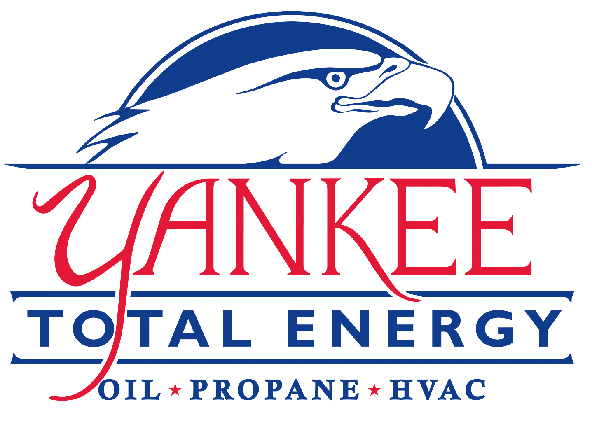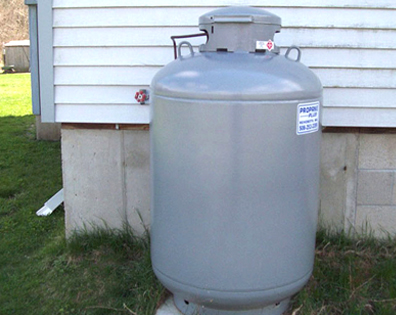Connecticut winters can be unpredictable and harsh. Heavy snow, ice storms, and high winds regularly disrupt power, leaving homeowners vulnerable to cold temperatures, interrupted heating, and inaccessible well systems. For families who rely on electricity for heating, water, medical devices, or basic comfort, an outage can quickly escalate from inconvenient to dangerous.
Propane backup power is a reliable solution that ensures your home remains warm and functional, even when the grid fails. Propane-powered generators are especially advantageous for homes that already use propane for heating or cooking, and they provide peace of mind for any household facing the uncertainties of New England winters.
This comprehensive guide will explore why propane backup power is essential, how it works, its benefits compared to other fuels, and how Connecticut homeowners can prepare their systems for maximum reliability — with expert guidance from Yankee Total Energy.
Why Winter Power Outages Are a Growing Concern
Connecticut experiences its fair share of winter storms, and outages are more common than many homeowners realize. Ice-laden branches, wind-damaged power lines, and aging infrastructure can all disrupt the local electrical grid.
Winter outages are particularly concerning because they coincide with high energy demand. Cold temperatures increase heating requirements, and many homes rely heavily on electricity for essential systems such as water pumps, furnaces, and medical devices.
These outages highlight the need for a reliable backup energy source. A propane-powered generator allows homeowners to maintain critical systems without interruption, ensuring safety, comfort, and continuity during severe weather.
How Propane Backup Power Works
Propane backup power systems are designed for convenience, safety, and seamless operation.
A typical system includes:
-
A propane storage tank, either aboveground or underground
-
A standby generator permanently installed outside the home
-
An automatic transfer switch that connects the generator to your electrical panel
-
Fuel lines connecting the tank to the generator
-
Integration with the home’s electrical system
When a power outage occurs, the automatic transfer switch detects the loss of grid power and starts the generator within seconds. Your home’s electrical load is then redirected to the generator, allowing essential systems — or the entire home — to continue running uninterrupted. When utility power is restored, the generator automatically shuts off, and your home returns to normal operation.
This fully automated process eliminates the need for manual intervention, ensuring homeowners stay warm and safe without stepping outside in freezing or dangerous conditions.
The Benefits of Propane Backup Power
Propane backup power provides several key advantages over gasoline or diesel alternatives:
Reliable Long-Term Fuel Storage
Propane does not degrade over time, unlike gasoline, which can become unstable and unusable after a few months. This allows homeowners to store fuel safely and rely on it whenever needed.
Clean and Efficient Operation
Propane burns cleaner than gasoline or diesel, reducing engine wear, emissions, and maintenance requirements. This leads to quieter operation and a longer generator lifespan.
Availability During Emergencies
Gas stations may be closed or run out of fuel during severe storms. Propane is delivered by suppliers and stored on-site, ensuring availability even during widespread outages.
Safe for Indoor and Outdoor Use
Propane generators can be safely integrated into your home’s system with proper ventilation, unlike some portable gasoline units that require careful handling.
Compatibility With Existing Propane Systems
For homes that already use propane for heating, cooking, or hot water, backup generators can seamlessly integrate with the existing fuel supply, simplifying maintenance and refueling.
Whole-Home vs. Essential-Load Backup Options
Homeowners must decide whether they want a whole-home backup system or an essential-load system:
Whole-Home Backup
Powers every outlet and appliance, providing a seamless experience during an outage. Heating, refrigeration, lighting, security systems, and even kitchen appliances continue to function as normal.
Essential-Load Backup
Prioritizes critical circuits only. Common essential circuits include heating systems, refrigerators and freezers, water pumps, lighting, and medical devices. Limiting load extends runtime and fuel efficiency while still maintaining essential comfort and safety.
Estimating Propane Needs for Backup Power
Determining how much propane you’ll need is crucial for uninterrupted operation during a storm.
Typical Usage:
-
Small to medium whole-home generators: 1–2 gallons per hour
-
Larger generators: 2–3 gallons per hour
-
Essential-load operation consumes less, typically 0.75–1.5 gallons per hour
Tank Capacity Examples:
-
A 250-gallon tank can provide multiple days of backup power, depending on load and generator size
-
A 500-gallon tank allows for extended operation during prolonged outages
-
Larger tanks provide longer-term security for households that rely heavily on electricity
Maintaining an adequately filled tank throughout the winter is essential to avoid shortages during emergencies.
Preparing Your Propane Backup Power System for Winter
Preparation is the key to ensuring your system performs reliably when you need it most.
Check Fuel Levels Regularly
Keep your tank above 30–40% to prevent shortages and regulator issues.
Ensure Clear Access to the Tank
Snow, ice, and debris can prevent delivery trucks from accessing your tank. Make sure the area is free and clearly marked for deliveries.
Inspect Regulator and Fuel Lines
Ice buildup or shifting snow can affect your system’s performance. Protective coverings and proper maintenance help prevent failures.
Test Your Generator
Run your generator periodically to ensure it starts and operates smoothly. Check the battery, electrical connections, and engine performance.
Enroll in Automatic Delivery Programs
Automatic delivery ensures your tank is refilled before it gets low, even if you are away during storms.
Maintaining Your Propane Generator
Even though propane generators are low-maintenance, annual inspections and seasonal checkups are crucial.
Maintenance Checklist:
-
Oil and filter changes
-
Battery checks
-
Running the generator under load to confirm operation
-
Clearing snow, leaves, and debris from the enclosure
-
Testing the transfer switch
Regular maintenance ensures the generator will function reliably during the first outage of the season, when it’s needed most.
Safety Guidelines During Outages
Safety is paramount when operating any generator system.
Proper Ventilation
Ensure exhausts are clear of snow or ice to avoid carbon monoxide buildup.
Detector Monitoring
Carbon monoxide and propane detectors should be functional and placed near living spaces.
Avoid Indoor Use of Outdoor Appliances
Never use portable propane heaters or gas stoves indoors for supplemental heat.
Monitor Generator Display
Check error indicators or diagnostic lights to address potential issues immediately.
Keep Emergency Pathways Clear
Snow and ice should be removed from the generator area and tank access points for safe deliveries if needed.
Case Example: Connecticut Winter Storm
During a February ice storm, a family in northern Connecticut lost power for over 36 hours. Their home was equipped with a propane-powered whole-house generator and a 500-gallon propane tank.
The generator started automatically as the outage began, powering the furnace, well pump, refrigerator, and essential lighting. The family remained warm and safe without interruption. When grid power returned, the system shut down automatically, and the tank still held sufficient propane for the next emergency.
This example illustrates the peace of mind and reliability provided by propane backup power.
Why Homeowners Choose Propane Backup Power
Propane backup power delivers several key benefits:
-
Reliable energy when the grid fails
-
Clean, efficient, and quiet operation
-
Seamless integration with existing propane systems
-
Automatic startup for convenience and safety
-
Support for critical home systems during emergencies
-
Long-term fuel storage without degradation
For Connecticut homeowners, propane backup power is more than an emergency measure — it is a long-term investment in home safety and comfort.
Partnering With Yankee Total Energy
Yankee Total Energy supports homeowners in preparing for winter storms with:
-
Reliable propane delivery services
-
Tank installation and maintenance support
-
Expert guidance on generator sizing and system integration
-
Automatic delivery and priority scheduling programs
-
Safety inspections and pre-winter checkups
Our team ensures that your home remains warm, powered, and safe throughout the harshest New England winters.
Prepare Now for Winter Peace of Mind
Winter outages are inevitable in Connecticut, but the discomfort and risk don’t have to be. Propane backup power offers homeowners a reliable, safe, and seamless solution to keep their homes running smoothly during storms.
By keeping your tank filled, maintaining your generator, and partnering with a trusted provider like Yankee Total Energy, you can face winter storms with confidence, knowing that your home, family, and systems are protected.
Contact Yankee Total Energy today to schedule your propane delivery, generator inspection, or automatic delivery enrollment — and ensure your home is ready for whatever winter brings.







